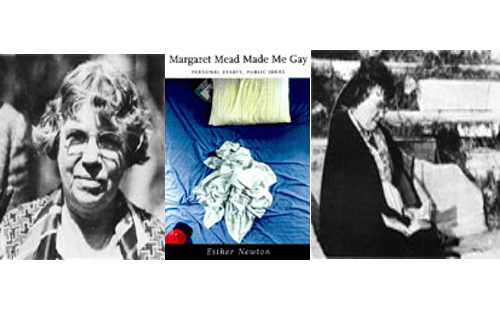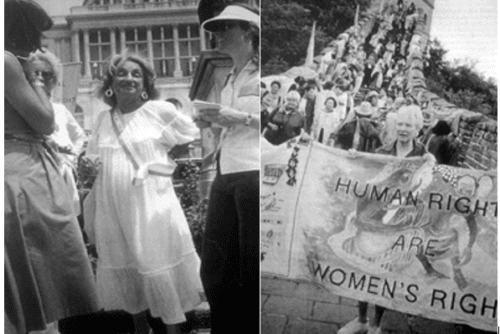This essay centers on the ubiquitous undergraduate curricular offering, the internship, as a fulcrum for critical inquiry about the project of activism in an era of neoliberal government, which casts a long shadow across our intellectual and political endeavors. Though more and more curricula across disciplines and schools are integrating the internship (usually credited as an independent study) into programs of study (often as a professionalizing turn), the internships we discuss here as community engagement or service learning signal especially complicated histories and vexing conjectures for those interdisciplinary fields querying power and knowledge. For gender and women’s studies and ethnic studies in particular, the community-engagement internship foregrounds these fields’ activist roots as political projects, enacts a return to community, and guarantees for these fields both a practical bent and a democratic self-narration.
A casual survey of gender and women’s and ethnic studies programs and departments throughout the United States that offer internships reveals that undergraduates in a given semester may “connect academic knowledge with field experience;” “learn how to apply their knowledge of diverse viewpoints in a workplace environment;” or “explore career opportunities working with individuals, agencies or organizations (private, nonprofit, or governmental), political advocacy groups, or women’s social movements that impact the lives” of women and communities of color. 1 In doing so, according to the internship descriptions, undergraduates are presented with occasions to apply “abstract knowledge” gleaned from the classroom to a “real life setting,” or, alternately, “a concrete institutional setting.” It is in these slippages between “real life,” “community,” and “concrete institution,” and the coupling of volunteerism and civic commitment with entrepreneurialism and employability, that we find telling clues about what is changed about the scope of activism and advocacy in this moment.
Our argument is twofold. First, we are wary of the production of knowledge about such transactional categories as “community” and “service” perpetrated by the dominant logics of the community-engagement internship at the same time that our programs and departments as intellectual enterprises are under pressure to establish relevance to corporatizing universities. As Caren Kaplan and Inderpal Grewal observe, “Universities exist to produce and supply expertise and knowledge. These are not neutral practices.” 2 One part of our concern, then, is that the community-engagement internship is emblematic of the neoliberalization of these programs and departments, providing technical-professional expertise and under-waged labor to nonprofits and NGOs, especially as states increasingly cede welfare concerns to these institutions as surrogates for community.
Second, we worry that the community-engagement internship is also emblematic of the diminishing horizon of the political. We find troubling the ways in which the internship produces and reinforces assemblages of power and knowledge about community and engagement (as well as activism, democracy, social justice, citizenship, et cetera) that might well serve neoliberal aims. Especially because community engagement is so narrowly programmed as participation in a nonprofit or NGO, we are concerned that the internship fails to trouble these institutions as always already enmeshed in the powers of neoliberal capital and the state governance. As such, we grapple with the following questions in this essay: What are the intellectual and political consequences of our current ways of thinking about community engagement and about women and gender and ethnic studies as academic units? What does the community engagement or service internship disclose about the changing cant of the political, especially in these field formations that are founded upon and also censured for their politicization (or, too often with regard to theoretical labor, their imputed lack thereof)? What are the possibilities for thereby reconfiguring the political against the diminished hopes of neoliberalism, and renewing a commitment to social justice as an intellectual practice?
As professors in gender and women’s studies and ethnic studies who consider activism central to our biographies, and who regard the nonprofit and NGO-ization of advocacy as important areas of our research, our concerns about the premises—as well the promises—of the community-engagement internship turn on a set of critical queries that help us think about this ubiquitous curriculum offering through the problematic linkages between knowledge production, institutional politics, global capital, neoliberal restructuring, and academic and other categories of labor. The women’s studies or ethnic studies undergraduate-cum-activist, as interpellated by the community-engagement internship, is a social and intellectual figuration that does not necessarily exist outside and against hegemonic power. As neoliberal collusions between state and capital have radically transmogrified the conditions under which activism and advocacy can (or cannot) be sustained, we consider this figuration to better understand how we equip our students to engage in the work of the political.
University in Crisis
At the present, the discussion of gender and women’s studies and ethnic studies must be contextualized within the institutional politics of the university in crisis. Under the market-driven corporatization and neoliberalization of the public university, the future of such interdisciplinary programs is precarious. 3 Interdisciplinarity names thorny and often volatile debates about what counts as interdisciplinary work and which persons enact it and which embody it (these are not necessarily the same). Interdisciplinary programs such as ethnic studies and gender and women’s studies (and where it exists, LGBT studies) occupy marginal positions, are underfunded, are often under threat within the corporatizing university, and are sometimes also under threat beyond the university (including facing hostile legislation), which often devalues our intellectual labors and indeed our fields as yielding legitimate research. 4 We are nonetheless called upon as to stand in for, as Roderick Ferguson observes, evidence and legitimation of the institution’s global and diversity commitments, or what we might otherwise call capital’s commoditization of “difference.” 5
In the shadow of neoliberal capital, interdisciplinarity might operate as a mechanism for management, as an imperative or an insecurity levied by the institution, but also might be established within our programs as a “solution” or supplement that meliorates our marginal status. It is in this shadow, then, that there are other imputed benefits to the community-engagement internship: community engagement may function as a sign for the usefulness of gender and women’s studies or ethnic studies programs and departments in the corporatizing university. For administrators concerned about vanishing revenues and funding-driven collaborations with state and nonstate enterprises, the community-engagement internship renders these programs and departments practical, fulfilling both institutional and political imperatives to serve and “give back” to a community otherwise imagined to be at a distance, and thereby creating a bridge between the all too familiar (and we hold suspicious) divides between theory and practice, academy and community. We argue, however, that the community-engagement internship instead reifies and legitimates these divides between different kinds of subjects and bodies of knowledge, and in doing so generates specific political discourses and ideological practices that reflect the tremendous changes wrought by neoliberalism.
- This list is an amalgam of descriptions for community engagement and service-learning internships found throughout the United States. We do not name particular programs or departments, as our purpose is not to criticize particular programs or institutions but rather to critically examine the intellectual and political projects of such courses as a whole. For brevity’s sake, we will refer to these internships as community-engagement internships, though we include the category of service learning in our concerns. We chose to emphasize community engagement because of the particular political histories of the interdisciplines as activist projects.[↑]
- Caren Kaplan and Inderpal Grewal, “Transnational Practices and Interdisciplinary Feminist Scholarship: Refiguring Women’s and Gender Studies,” Women’s Studies on Its Own: A Next Wave Reader, ed. Robyn Weigman, (Durham: Duke UP, 2002) 68.[↑]
- See for example Lisa Marie Cacho, “But Some of Us Are Wise: Academic Illegitimacy and the Affective Value of Ethnic Studies,” Black Scholar 40.4 (2010): 28-36;
Roderick Ferguson, “Administering Sexuality or, the Will to Institutionality,” Radical History Review 100 (2008): 158-69; Sheila Slaughter and Larry Leslie, Academic Capitalism: Politics, Policies, and the Entrepreneurial University (Baltimore: Johns Hopkins UP, 1997).[↑] - See Cacho 2010.[↑]
- See Ferguson 2008, as well as Roderick Ferguson, The Reorder of Things: The University and Its Pedagogies of Minority Difference (Minneapolis: U of Minnesota P, 2012).[↑]



